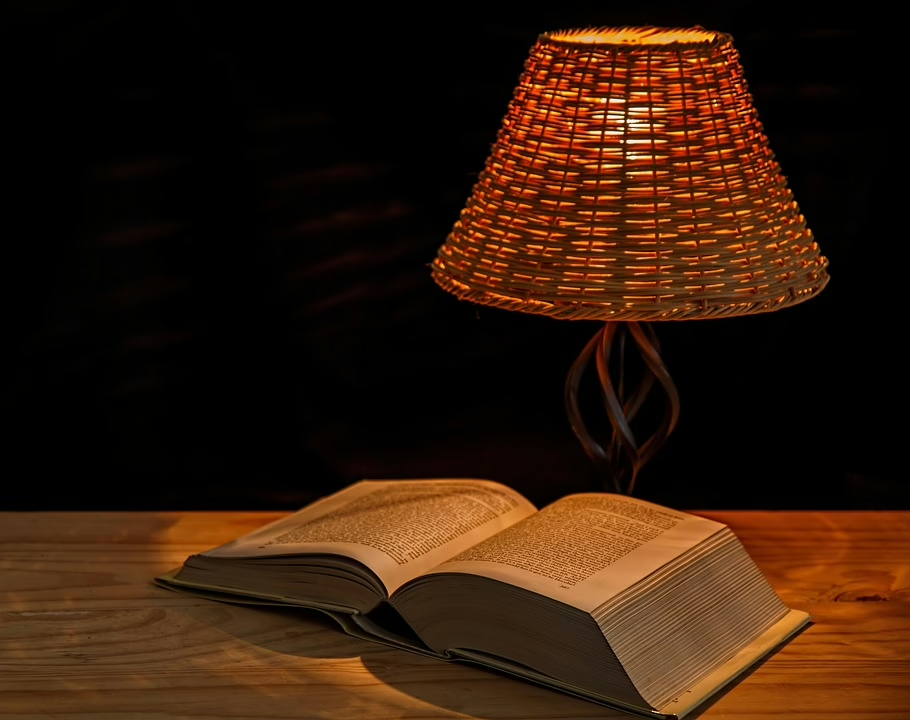Certainly! Here is an adapted article that explores the themes and angles commonly found in literature. This will be a general conceptual framework, as a specific book wasn’t provided. Let’s delve into various literary themes, using a modern approach, and focusing on universal motifs found in contemporary literature.
Exploring Themes in Modern Literature: A Journey Through Emotion, Identity, and Society
In the vast realm of modern literature, themes serve as the backbone, guiding readers through complex narratives and helping them resonate with the characters and plots. Contemporary authors delve deep into the human experience, tackling subjects like identity, societal norms, love, and existentialism, often mirroring the shifting dynamics of today’s world. This article explores several prevalent themes in modern literature, drawing connections between these motifs and how they reflect our evolving understanding of life.
1. Identity: The Search for Self
The Quest for Identity is fundamental in contemporary storytelling, fueled by the belief that in an increasingly fragmented world, understanding oneself is vital. Characters often embark on journeys of self-discovery, grappling with personal and cultural identities.
Consider novels like The Namesake by Jhumpa Lahiri, where the protagonist grapples with the duality of his Indian heritage and his American upbringing. This dichotomy creates tension, leading to deep introspection and a search for belonging. Lahiri’s work resonates with many in today’s multicultural society, reflecting the often tumultuous path to accepting one’s identity.
Furthermore, the rise of intersectionality in modern discourse has influenced literature. Authors like Brit Bennett in The Vanishing Half explore themes of race, gender, and class, showcasing how these facets shape individual identities and societal perceptions. By intertwining personal and collective narratives, modern authors delve into the complexities of self-definition, encouraging readers to confront their own identities.
2. Love: Beyond Conventional Boundaries
Love is a timeless theme, yet its representation has evolved significantly. Modern literature often challenges traditional notions of love, showcasing its multifaceted nature and the impact of societal changes on relationships.
Novels like Red, White & Royal Blue by Casey McQuiston throw light on same-sex relationships, blending romance with socio-political commentary. The love story transcends romantic norms, reflecting the broader conversation surrounding LGBTQ+ rights and acceptance. Such narratives invite readers to explore love as a fluid concept rather than a fixed ideal.
Additionally, the advent of technology has transformed relationships. In Exciting Times by Naoise Dolan, the protagonist navigates romance in the digital age, highlighting how modern communication shapes emotional connections. Dolan’s exploration of love illustrates the complexities of contemporary relationships against a backdrop of global connectivity and personal alienation.
3. Societal Issues: Reflecting the World Around Us
Modern literature serves as a mirror to societal issues, critiquing injustices and offering insights into the human condition. Authors increasingly address themes of inequality, environmental degradation, and systemic oppression, compelling readers to engage with pressing global concerns.
Within dystopian narratives, such as The Water Knife by Paolo Bacigalupi, the consequences of climate change and resource scarcity are vividly illustrated. The portrayal of a future ravaged by water shortages not only serves as a cautionary tale but also calls for urgent societal reflection and action.
Additionally, works like The Hate U Give by Angie Thomas delve into themes of racism and police brutality, sparking dialogues about privilege and resistance. By foregrounding marginalized voices, authors challenge readers to confront uncomfortable truths about society’s structures and their roles within them.
4. Mental Health: Breaking the Silence
The conversation around mental health has gained momentum in recent years, and literature plays a crucial role in normalizing these discussions. Modern authors depict the struggles of mental health, offering insight into the complexities of emotional well-being.
In books like Depression Era by Neil Gaiman, the intricacies of mental health issues are addressed with sensitivity, inviting empathy and understanding. By creating characters who grapple with anxiety, depression, and trauma, authors allow readers to see reflections of their struggles, fostering a sense of solidarity and awareness.
Moreover, novels such as The Bell Jar by Sylvia Plath have experienced a resurgence, resonating with a new generation grappling with mental illness. The candid representation of Plath’s protagonist, Esther Greenwood, highlights the societal stigma surrounding mental health, promoting a dialogue about seeking help and breaking the silence.
5. The Role of Technology: Connection or Isolation?
As technology becomes increasingly integral to our daily lives, its portrayal in literature reveals both its benefits and challenges. Modern authors explore the duality of technology—its power to connect and isolate.
In Ready Player One by Ernest Cline, readers are transported to a virtual reality where technology offers escapism from a grim reality. Yet, this narrative also raises questions about the authenticity of human connections. Cline’s exploration of virtual worlds highlights the tension between real-life relationships and digital interactions.
Conversely, novels like The Circle by Dave Eggers critique the pervasive influence of technology on individual privacy and societal norms. By examining the implications of a hyper-connected world, authors provoke reflection on the balance between technological advancement and human connection.
Conclusion: The Power of Stories
As we navigate the complexities of modern life, literature remains a vital avenue for exploring and understanding our shared humanity. The themes outlined—identity, love, societal issues, mental health, and technology—serve as lenses through which we can examine ourselves and the world around us.
Contemporary authors invite us to engage with these narratives, urging us to confront our truths and challenge the status quo. Through their insights, we gain the opportunity to reflect on our experiences and learn from one another, fostering a collective understanding that transcends individual stories.
Literature is more than mere entertainment; it is a powerful tool for empathy and change. As we read the stories of others, we not only broaden our own perspectives but also acknowledge the diverse tapestry of human experiences that make up our world.
References
- Lahiri, Jhumpa. The Namesake. Houghton Mifflin, 2003.
- Bennett, Brit. The Vanishing Half. Riverhead Books, 2020.
- McQuiston, Casey. Red, White & Royal Blue. St. Martin’s Griffin, 2019.
- Dolan, Naoise. Exciting Times. Ecco, 2020.
- Bacigalupi, Paolo. The Water Knife. Knopf, 2015.
- Thomas, Angie. The Hate U Give. Balzer + Bray, 2017.
- Gaiman, Neil. Depression Era. Anansi Press, 2021.
- Plath, Sylvia. The Bell Jar. Harper & Row, 1971.
- Cline, Ernest. Ready Player One. Crown Publishers, 2011.
- Eggers, Dave. The Circle. Knopf, 2013.
This article summarizes major themes in modern literature and their implications, showcasing the evolution of storytelling in reflecting contemporary societal norms and personal experiences. If you have a specific book in mind or want to explore further certain themes, please let me know!


























Add Comment